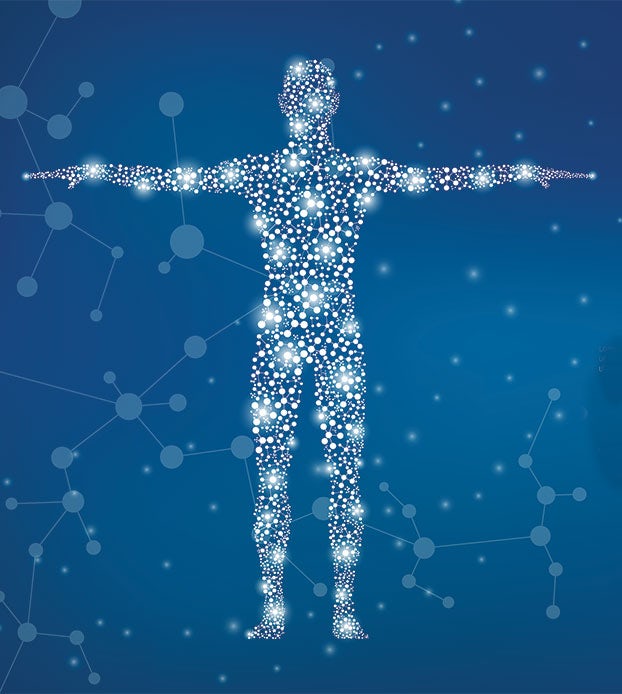Ever wondered how cannabinoids like THC or CBD affect your blood? It may seem like a weird question, but it is a vitally important one for anyone taking anticoagulant medications and considering using cannabis. It turns out that this issue has been under-researched and could have significant impacts on patients who may be at greater risk of heart attacks and strokes.
What is a blood thinner?
It is not uncommon for patients at a high risk of blood clots and strokes to receive medications called “anticoagulants” or “antiplatelet drugs”, often generically referred to as “blood thinners.” These drugs do exactly what you might expect – prevent blood from forming a clot. It is important to note that while clotting is good and necessary when you have a cut or injury, forming a clot inappropriately can be highly dangerous. Blood clots can greatly interrupt blood flow to the surrounding tissue, causing serious damage to important organs, and sometimes death. Some common examples of anticoagulant blood thinning medications on the market include warfarin (Coumadin), heparin, apixaban (Eliquis), and enoxaparin (Lovenox). One of the most common examples of an antiplatelet drug is aspirin.
How do blood thinners work?
Blood thinners typically act in one of two ways – as anticoagulants or antiplatelets. But before we explain how these drugs work, it is important to understand a couple of things about blood clotting in the human body.
Blood consists of several primary constituents including plasma, red blood cells, white blood cells, and platelets. Whenever we injure ourselves and break a blood vessel, causing bleeding, platelets start to attach to the damaged tissue and act as a kind of cork that plugs the hole in the blood vessel. 1
Blood thinners disrupt the blood clotting process in one of two ways. Anticoagulants typically slow down the process of blood clotting by interrupting clotting factors, whereas antiplatelet drugs prevent platelets from coming together to form blood clots in the first place.
Typically, “blood thinners” refer to anticoagulants, though you may find the term “blood thinner” applied to either anticoagulants or antiplatelet drugs.
Does weed thin your blood?
The short answer is – no, in most cases cannabinoids do not seem to act as strong blood thinners. There are very few case studies that report anticoagulant effects in cannabis patients, and the ones that do exist involve using cannabis with traditional anticoagulant medications. 2
While the general concensus is that phytocannabinoids (derived from the cannabis plant) do not cause anticoagulations, there has been only one study that found that THC, CBD and CBN could thin the blood of obese rodents. Preclinical rodent studies are challenging to interpret, however, as the results very often don’t directly scale to the human biological system. In this study the authors speculated that cannabinoids may be inhibiting an enzyme in blood plasma called thrombin, which promotes blood clotting. Additionally, the authors noted that THC (and CBD for that matter) are known to interact with receptors known as PPARy3, which are highly present in blood vessels. Lastly the authors note that certain endocannabinoids like anandamide may promote clotting, but these tests were in vitro (aka in a laboratory test-tube), not in a living animal. 4
There have also been reports that synthetic cannabinoids, aka spice or K2, may cause blood thinning due to contaminants found mixed with the cannabinoids. Basically, rat poison designed to work by making rodents bleed to death is occasionally mixed with synthetic cannabinoids, either accidentally or as a cutting agent, which can cause coagulopathy (aka inappropriate clotting). In this case, hundreds of patients were seen in emergency departments in 2018 with signs of bleeding with no known cause. It was later found that many of these patients had been consuming synthetic cannabinoid products, and these products were contaminated with rat poison. This is yet another cautionary tale regarding synthetic cannabinoids and another reason why cannabis regulations allowing for safe access to cannabis are so important. 56
Is it safe to use THC with blood thinners?
This is a tricky one given the lack of research. In general patients taking anticoagulants often have cardiovascular issues, which can be problematic with cannabis use as THC is known to cause changes in heart rate and blood pressure. This effect is particularly strong with smoking or vaping THC products, but can also happen with edibles. So it follows that THC should likely be avoided if a patient is taking blood thinners.
If a patient is taking anticoagulants, that could indicate that their cardiovascular system may not be in the best of health to begin with. This can be problematic with cannabis use, in particular THC which is known to cause changes in heart rate and blood pressure. Generally, patients with high risks of strokes, heart attacks and other cardiovascular dysfunction are those most commonly prescribed blood thinners. Since THC carries its own risk of exacerbating cardiovascular issues in susceptible users and should likely be avoided if a patient is taking blood thinners. 7
As far as THC’s anticoagulant effects are concerned, there is very limited evidence that THC may act as an anticoagulant by inhibiting thrombin, but that evidence is in rodents and stems from only one study mentioned previously. The real concern about THC in this population is actually related to blood pressure, heart rate and heart rhythm; an older heart may be even more susceptible to these changes. 8 9
CBD and Blood Thinners
As mentioned previously, CBD is a known PPARy receptor agonist, causing vasorelaxation and lowering blood pressure. CBD is also known to interfere with the normal function of certain enzymes already inside of us, known as cytochrome P450 enzymes. These CYP450 enzymes are all over our bodies and play important roles in metabolizing food and drugs. Cannabidiol is a known inhibitor of some CYP enzymes, leading to an increased risk of pharmaceutical drug interactions. And CBD is not alone in this effect. Many other phytocannabinoids do carry this potential to interfere with liver enzymes – though all of them do so with lesser potency than CBD. In simple terms, CBD can slow the body’s ability to break down common medications – including blood thinners.
There are multiple case reports available which detail situations in which patients have experienced herb-drug or drug-drug interactions between CBD and a common anticoagulant, warfarin (Coumadin). In one instance, a 46-year-old male patient required a nearly 20% reduction in their warfarin dose after beginning Epidiolex, a pharmaceutical containing CBD isolate in a liquid solution. In another instance, a 44 year-old male patient required a 30% dose reduction in warfarin after starting to use CBD oil. There was, however, one case report where this drug interaction did not occur. 10 11 12 13 14
These drug interactions highlight some important lessons. First, it is important to recognize that pharmaceutical interactions with cannabis are very real and can be dangerous if not monitored properly – especially in the context of drugs like blood thinners. However, there is a flip side to this drug interaction issue. Oftentimes, if a patient and their physician are aware of these potential interactions, it’s possible a patient could choose to continue using anticoagulants and cannabis together. This combination would likely warrant close monitoring of the anticoagulant effects, and would certainly require increased communication between the patient and the medical provider. But if monitored properly, it’s possible that the dose of patient’s anticoagulants could be reduced, possibly reducing the risk of serious negative side effects from those medications while still deriving benefit from the cannabinoids.
Bottom line: Talk to your healthcare provider
So what does all of this mean? Is marijuana a blood thinner?
According to the miniscule amount of research that has been performed so far on this topic, it is possible that cannabinoids like THC or CBD could act as anticoagulants, and the endocannabinoid system is involved in platelet aggregation. However, it appears this effect may only be in certain contexts, for instance, in the rodent study that identified anticoagulant effects of THC, CBD and CBN, the rodents were obese rodents in a simulated Type-2 diabetes model. In that scenario, cannabinoids exhibited anticoagulant effects by inhibiting the blood clotting signaling compound thrombin. However, we do not know how that would scale up to humans with Type 2 diabetes or other conditions. 15
We do know that cannabinoids can interact negatively with blood thinning medications, either by inhibiting their breakdown and elevating their concentrations in the body or by preventing their activation. In both cases, this can be extremely dangerous for patients, as coagulation of blood is a fine balance of clotting and bleeding, and the result of managing these medications poorly can be as serious as death. This is why it is so important to talk to a healthcare professional if you plan to try using cannabis in combination with anticoagulant and antiplatelet medications. Your physician can arrange regular blood tests to monitor for interactions with other medications and take appropriate steps as needed to keep you safe.
So for now, the jury is still out. There is a tiny bit of preclinical evidence that cannabinoids may affect blood’s ability to clot, but a lot more research is still needed. However if you combine cannabis products, especially CBD, with your anticoagulant or antiplatelet medication, be sure to take extra caution to monitor the effects with your doctor.
Sources
- https://www.hematology.org/education/patients/blood-basics
- Greger J, Bates V, Mechtler L, Gengo F. A Review of Cannabis and Interactions With Anticoagulant and Antiplatelet Agents. J Clin Pharmacol. 2020;60(4):432-438. doi:10.1002/jcph.1557
- O’Sullivan SE. Cannabinoids go nuclear: evidence for activation of peroxisome proliferator-activated receptors. British Journal of Pharmacology. 2007. 152. 576-582. doi: 10.1038/sj.bjp.0707423.
- Coetzee C, Levendal RA, van de Venter M, Frost CL. Anticoagulant effects of a Cannabis extract in an obese rat model. Phytomedicine. 2007 May;14(5):333-7. doi: 10.1016/j.phymed.2006.02.004. Epub 2006 Apr 27. PMID: 16644197.
- Devgun JM, Rasin A, Kim T, Mycyk MB, Bryant SM, Wahl MS, DesLauriers C, Navon L, Moritz ED, Thompson TM, Swoboda HD. An outbreak of severe coagulopathy from synthetic cannabinoids tainted with long-acting anticoagulant rodenticides. Clinical Toxicology. 2020 Aug 2;58(8):821-8.
- Gowthami M. Arepally, Thomas L. Ortel; Bad weed: synthetic cannabinoid–associated coagulopathy. Blood 2019; 133 (9): 902–905. doi: https://doi.org/10.1182/blood-2018-11-876839
- Subramaniam VN, Menezes AR, DeSchutter A, Lavie CJ. The Cardiovascular Effects of Marijuana: Are the Potential Adverse Effects Worth the High? Mo Med. 2019 Mar-Apr;116(2):146-153. PMID: 31040502; PMCID: PMC6461323.
- Coetzee C, Levendal RA, van de Venter M, Frost CL. Anticoagulant effects of a Cannabis extract in an obese rat model. Phytomedicine. 2007 May;14(5):333-7. doi: 10.1016/j.phymed.2006.02.004. Epub 2006 Apr 27. PMID: 16644197.
- Goyal H, Awad HH, Ghali JK. Role of cannabis in cardiovascular disorders. J Thorac Dis. 2017;9(7):2079-2092. doi:10.21037/jtd.2017.06.104
- Josh Cortopassi, PharmD, Warfarin dose adjustment required after cannabidiol initiation and titration, American Journal of Health-System Pharmacy, Volume 77, Issue 22, 15 November 2020, Pages 1846–1851, https://doi.org/10.1093/ajhp/zxaa268
- Grayson L, Vines B, Nichol K, Szaflarski JP; UAB CBD Program. An interaction between warfarin and cannabidiol, a case report. Epilepsy Behav Case Rep. 2017 Oct 12;9:10-11. doi: 10.1016/j.ebcr.2017.10.001. PMID: 29387536; PMCID: PMC5789126.
- Thomas, T.F., Metaxas, E.S., Nguyen, T. et al. Case report: Medical cannabis—warfarin drug-drug interaction. J Cannabis Res 4, 6 (2022). https://doi.org/10.1186/s42238-021-00112-x
- Josh Cortopassi, PharmD, Warfarin dose adjustment required after cannabidiol initiation and titration, American Journal of Health-System Pharmacy, Volume 77, Issue 22, 15 November 2020, Pages 1846–1851, https://doi.org/10.1093/ajhp/zxaa268
- Grayson L, Vines B, Nichol K, Szaflarski JP; UAB CBD Program. An interaction between warfarin and cannabidiol, a case report. Epilepsy Behav Case Rep. 2017 Oct 12;9:10-11. doi: 10.1016/j.ebcr.2017.10.001. PMID: 29387536; PMCID: PMC5789126.
- Coetzee C, Levendal RA, van de Venter M, Frost CL. Anticoagulant effects of a Cannabis extract in an obese rat model. Phytomedicine. 2007 May;14(5):333-7. doi: 10.1016/j.phymed.2006.02.004. Epub 2006 Apr 27. PMID: 16644197.
Sign up for bi-weekly updates, packed full of cannabis education, recipes, and tips. Your inbox will love it.

 Shop
Shop Support
Support
















